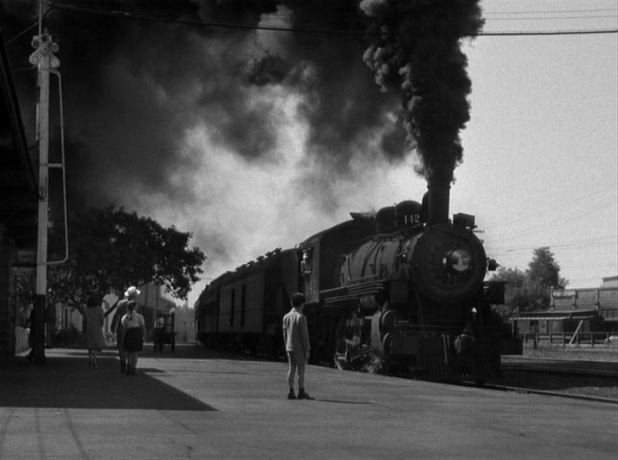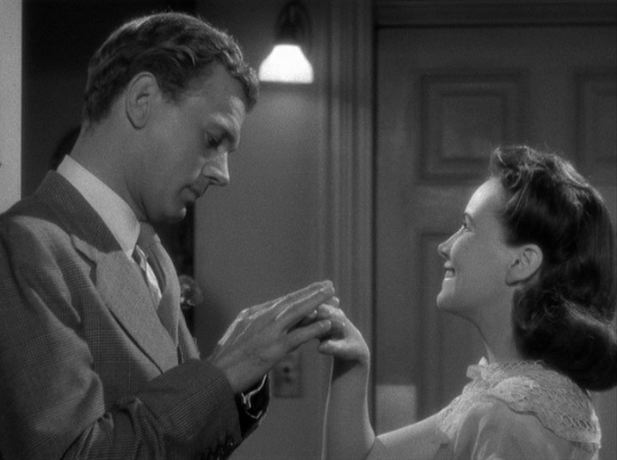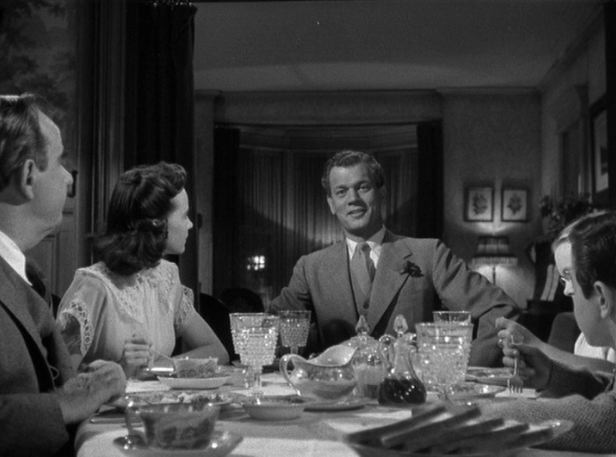Alfred Hitchcock’s Shadow Of A Doubt, from 1942, is a kind of proto-film-noir. It shares the dark view of human nature and the deeply skeptical vision of “respectable” society that would inform the post-WWII film noir. WWII was just getting under way for America when the film was made, but much of the rest of the world had already been at war for three years by then, and clearly the global conflagration was beginning to create a deep anxiety in the psyches of sensitive, thoughtful artists like Hitchcock and Thornton Wilder, who co-wrote the screenplay.
At the beginning of the century America had participated in a “war to end all wars” and now the continents were aflame again. There seemed to be some intrinsic, irrepressible evil in the nature of human beings, or in the organization of their societies, which led to wholesale destruction at regular intervals, despite the best efforts of mankind’s intellect and collective goodwill.

The fragility of human institutions, especially the family, was acutely sensed. Shadow Of A Doubt was pre-noir in that it didn’t concentrate on the world’s corruption or on the impotence of manhood, personified in the devouring femme fatale, but rather on the human being’s inward capacity for evil, which seemed to erupt without reason or warning. “The world needs watching,” says the young hero at the film’s end — meaning, mankind needs watching. There was still, in 1942, a faith in the idea that watching might do some good. At the core of the post-war film noir was a sense that such a faith was delusional.
The magnificent irony at the heart of Shadow Of A Doubt is that the threatened family is presented at the beginning of the film as a trap, a web of annoyance and boredom. The glamor of the unconventional, rootless, iconoclastic Uncle Charley is presented as a deliverance from the suffocating everyday reality of family and small-town life.

But as our suspicions of Uncle Charley grow, we begin to treasure the ordinary goodness of the family he seems to be rescuing from its rut. Only in the light of their fragility can we appreciate family and community for the treasures they are, the bulwarks they are against the world’s insidious darkness.

It’s easy to see how this related to the mood of the nation, and the world, when the film was made — but its resonance has if anything grown deeper as the post-war era has played out, with the family and community in deeper and deeper jeopardy, threatened now in “advanced” societies not by external violence but from within. Wilder and Hitchcock are still reminding us how truly naked and vulnerable we are in the face of the world’s horrors — still reminding us that those horrors originate in the human heart, and that our few defenses against them are both frail and inexpressibly sweet.
Shadow Of A Doubt was Hitchcock’s favorite film — he certainly never made a greater one.
